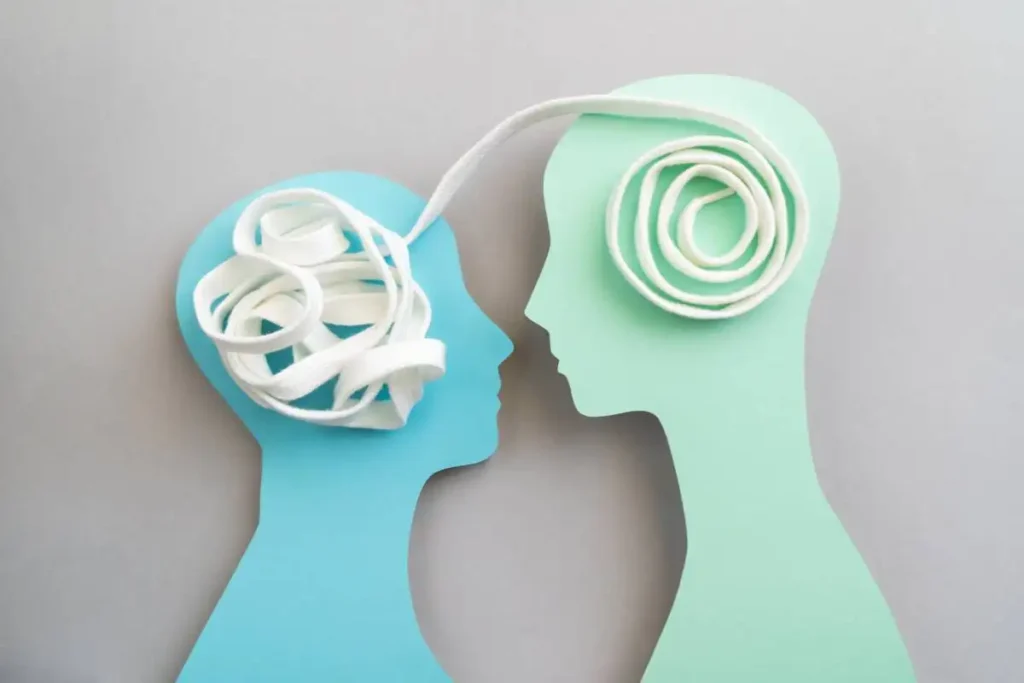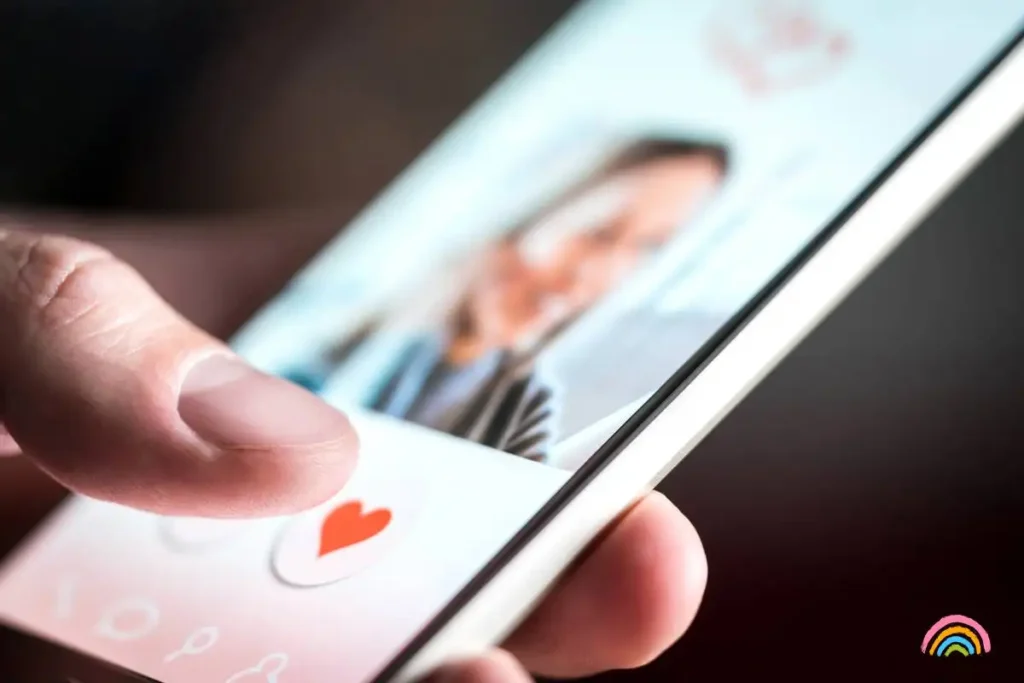Autism is a spectrum disorder that affects the way a person communicates, interacts, and processes information.
As such, relationships and love can be more challenging for individuals with autism. However, this does not mean that they are incapable of experiencing love or forming meaningful relationships.
The Spectrum of Autism and Relationships
Autism is a spectrum disorder, meaning that it affects individuals differently. Some individuals with autism may have difficulty forming relationships due to social and communication challenges, while others may have successful relationships but struggle with emotional regulation.
It is essential to recognize that each individual’s experience with autism is unique and that there is no one-size-fits-all approach to forming relationships.
It is important to understand that individuals with autism may have difficulty with nonverbal communication, such as body language and facial expressions. As such, they may find it challenging to interpret social cues and understand the emotions of others.
However, this does not mean that they are incapable of loving or forming meaningful relationships. With patience, understanding, and communication, individuals with autism can form successful relationships.
Emotional Intelligence in Autism
Emotional intelligence refers to the ability to recognize and manage one’s emotions, as well as the emotions of others.
Individuals with autism may struggle with emotional intelligence, which can make forming and maintaining relationships more challenging. However, with support and guidance, individuals with autism can learn to recognize and manage their emotions.
It is important to recognize that emotional intelligence is not a one-time achievement but rather a continuous process. With practice and support, individuals with autism can improve their emotional intelligence and develop meaningful relationships.
Challenges in Autism and Romantic Relationships
Being in a romantic relationship can be a challenge for anyone, but it can be particularly difficult for individuals with autism. Communication barriers and social interaction difficulties can make it hard for them to form and maintain romantic relationships.
Communication Barriers
Individuals with autism may have difficulty with verbal and nonverbal communication, which can make it hard for them to express their feelings and emotions to their partner. They may also have trouble understanding the emotions and intentions of their partner, which can lead to misunderstandings and conflict.
To overcome these communication barriers, both partners need to be patient and understanding. It may also be helpful to use visual aids, such as pictures or diagrams, to help convey feelings and emotions.
Social Interaction Difficulties
Individuals with autism may struggle with social interactions, which can make it hard for them to connect with their partner on an emotional level. They may have difficulty reading social cues, such as body language and facial expressions, which can lead to misunderstandings and misinterpretations.
To overcome these social interaction difficulties, both partners need to be aware of each other’s needs and preferences. It may also be helpful to establish clear boundaries and expectations and to communicate openly and honestly about any issues or concerns.
Strategies for Fostering Love
Individuals with autism can experience romantic love and often attach considerable value to their close relationships. However, they may face challenges in building and maintaining romantic relationships. Here are some strategies that can help foster love and understanding for individuals with autism:
Support Systems and Therapy
Having a strong support system can play a significant role in fostering love and relationships for individuals with autism. Family, friends, and therapists can provide a safe space for individuals with autism to discuss their feelings, challenges, and goals.
Therapy can help individuals with autism develop social skills, communication strategies, and coping mechanisms to navigate the complexities of romantic relationships.
Adapting Communication Styles
Communication is a vital component of any relationship, and adapting communication styles can help individuals with autism build stronger connections with their partners. Individuals with autism may have difficulty interpreting nonverbal cues and may struggle with sarcasm or figurative language.
Therefore, it’s crucial to communicate clearly and concisely, using concrete language and avoiding metaphors or idioms. Moreover, it’s essential to listen actively and be patient while waiting for a response.
Success Stories of Love and Autism
Autism can make it difficult for individuals to form and maintain relationships, but it is not impossible. There are many success stories of love and autism. These stories offer hope and inspiration to those who may be struggling to find love or maintain a relationship.
Personal Narratives
One such success story is that of Kyle Jetsel, a father of six kids. His two middle sons were diagnosed on the autism spectrum, and for years, Kyle and his now-deceased wife, Shelly, struggled with raising their sons.
However, after attending a parenting conference, they were inspired to try new approaches and techniques. Through hard work and dedication, they were able to renew their love and strengthen their relationship.
Another personal narrative is that of Alfonso J. Camacho, a person with autism. He wrote a guest blog post for Love & Autism, in which he shared his thoughts on love and autism. According to Alfonso, love and autism remind him of “the little things that make life worth living.” He believes that people with autism can love and be loved just like anyone else.
Relationship Milestones
Another success story of love and autism is that of Kirsten Lindsmith and Jack Robison, a couple who both have autism.
They met online and fell in love, but faced many challenges due to their condition. However, they were able to overcome these challenges and celebrate many relationship milestones, such as moving in together and getting engaged.
Similarly, Emily and David are another couple who both have autism. They met through an autism support group and fell in love. Despite the challenges they face, they are committed to each other and have been able to maintain a successful relationship.
These success stories of love and autism demonstrate that it is possible to find love and maintain a successful relationship, even with autism. While it may take hard work and dedication, it is worth it in the end.
Research on Autism and Love
Recent studies have shown that people with autism can experience romantic love and attach significant value to their close relationships [1][3]. However, they may face challenges in building and maintaining intimate relationships [2][4].
One study found that 50% of autistic participants were in relationships compared to 70% of neurotypical participants [2]. Another study discussed the barriers to healthy intimate relationships for individuals with autism and provided strategies to overcome these barriers [4].
Psychological Theories on Love and Autism
Psychological theories on love and autism suggest that individuals with autism may experience love differently than neurotypical individuals [1][3].
For example, some individuals with autism may struggle with the emotional and social aspects of love, such as recognizing and expressing emotions and interpreting social cues [1]. Additionally, some may experience sensory sensitivities that can impact their ability to engage in physical affection [3].
Despite these challenges, individuals with autism are capable of forming meaningful and loving relationships. It is important to recognize and understand these differences to better support individuals with autism in their romantic relationships.
[1] Psychology Today. (2022, February 14). Can a Person With Autism Fall in Love? https://www.psychologytoday.com/us/blog/women-autism-spectrum-disorder/202110/can-person-autism-fall-in-love
[2] Psych Central. (n.d.). Autism and Relationships: Benefits and Challenges. https://psychcentral.com/autism/autism-and-relationships
[3] The Conversation. (2023, April 23). Autistic people often feel they’re ‘doing love wrong’ – but there’s another side of the story. https://theconversation.com/autistic-people-often-feel-theyre-doing-love-wrong-but-theres-another-side-of-the-story-199200
[4] Frontiers. (2021, February 23). Common Venues in Romantic Relationships of Adults With Autism Spectrum Disorder: A Scoping Review. https://www.frontiersin.org/articles/10.3389/fpsyt.2021.593150/full







